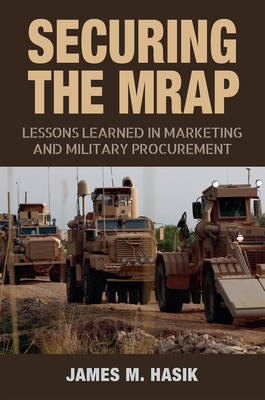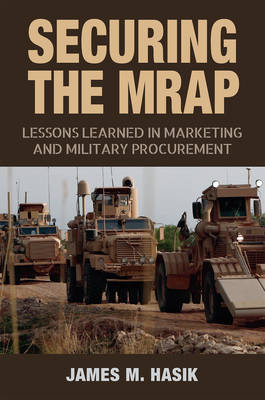
- Retrait gratuit dans votre magasin Club
- 7.000.000 titres dans notre catalogue
- Payer en toute sécurité
- Toujours un magasin près de chez vous
- Retrait gratuit dans votre magasin Club
- 7.000.000 titres dans notre catalogue
- Payer en toute sécurité
- Toujours un magasin près de chez vous
Description
Dwight D. Eisenhower once quipped, "You will not find it difficult to prove that battles, campaigns, and even wars have been won or lost primarily because of logistics." Military acquisition and procurement--that is, how a nation manages investments, technologies, programs, and support--is critical to wartime success or failure. When unexpected battlefield problems arise, how do the government, the military, and industry work together to ensure effective solutions?
During the American counterinsurgent campaign in Iraq, the improvised explosive device emerged as a disruptive and devastating threat. As Humvees, and their occupants, were ripped apart by IEDs, it was clear that new solutions had to be found. These solutions already existed but had not been procured, highlighting the need for more effective marketing to the military by industry. The ultimate successful response--the mine-resistant, ambush-protected vehicle, or MRAP--required years of entrepreneurial marketing by the defense industry.
In Securing the MRAP: Lessons Learned in Marketing and Military Procurement, James Hasik explores how these vehicles, which the American military mostly rejected despite the great need for them, eventually came to be adopted as the Pentagon's top procurement priority. Hasik traces the story of the MRAP from the early 1970s to the future of mine-resistant vehicles on the battlefields of tomorrow.
An important contribution to the seemingly disparate fields of marketing and defense policy, Securing the MRAP is an eye-opening revelation to defense industrialists, military officers, and government officials who want to understand how to avoid another IED-Humvee debacle.
Spécifications
Parties prenantes
- Auteur(s) :
- Editeur:
Contenu
- Nombre de pages :
- 320
- Langue:
- Anglais
- Collection :
Caractéristiques
- EAN:
- 9781623499426
- Date de parution :
- 02-09-21
- Format:
- Livre relié
- Format numérique:
- Genaaid
- Dimensions :
- 155 mm x 229 mm
- Poids :
- 616 g







